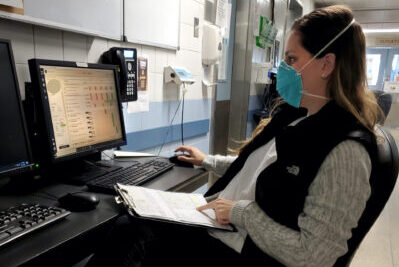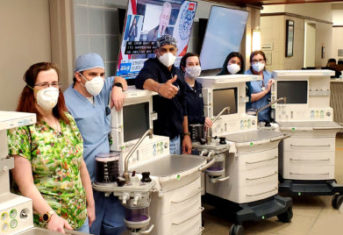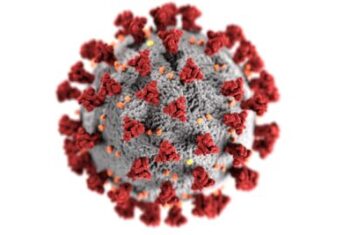SARS-CoV-2 in Dogs and Cats (Updated October, 2020)

SARS-CoV-2 in Dogs and Cats (Updated October, 2020)
A note on terminology: COVID-19 is the name of the disease in humans. SARS-CoV-2 is the name of the virus and the name of the disease in animals.
Shortly after SARS-CoV-2 was identified, there was an initial flurry of reports on infections in dogs. There were also reports of increased susceptibility in feline and ferret populations. Cats’ increased susceptibility to infection is thought to be due to the structure of the feline ACE-2 receptor, which is similar to that of humans. The ACE-2 receptor is how the SARS-CoV-2 virus enters cells. Since those initial reports, there has not been much news, but now new information is starting to appear in scientific publications.
SARS-CoV-2 in Pets
Hong Kong Cats
Early in the pandemic, the Hong Kong Agriculture, Fisheries and Conservation Department quarantined and studied pets of COVID-19 patients. In the six-month period between February 2020 and August 2020, 50 cats were tested for the presence of SARS-CoV-2. Only 6 of these cats tested positive for the virus, and only 1 cat developed antibodies against SARS-CoV-2. No cats developed any signs of illness during quarantine. The genetic sequence of the virus in one cat was identical to the genetic sequence of the virus from its owner, suggesting the owner infected the cat.
Wuhan Cats
Veterinarians in Wuhan, the geographic origin of the pandemic, studied blood samples taken from 39 cats before the outbreak of COVID-19 and 102 post-outbreak samples from shelter cats, cats seeking veterinary care and cats belonging to people with COVID-19. Ten percent of the cats in this study developed antibodies against SARS-CoV-2. More cats belonging to people with COVID-19 had antibodies than in the other groups studied.
Spanish Cats
Spanish researchers report only one of 23 cats living with a COVID-19 patient tested positive for the virus. No cat exhibited signs of illness.
French Cats and Dogs
Experimental Infections in Dogs and Cats
A recently published study looked at experimental SARS-CoV-2 infections in dogs and cats. None of the animals in the study showed signs of illness, despite careful monitoring by veterinarians. All dogs and cats produced antibodies against SARS-CoV-2. Infected cats shed virus for about a week and could infect other cats living in the same pathogen-free facility. Dogs did not appear to shed virus.
Taken together, these publications continue to support dogs’ and cats’ low susceptibility to SARS-CoV-2 infection and indicate mild illness, if any, in most pets. To date scientists have found no evidence of dog- or cat-to-human spread.
COVID-19 and the Human-Animal Bond
Researchers in both Spain and the UK studied the pandemic’s effect on the human-animal bond. In Spain, people confined to their homes reported more emotional closeness and interaction with their pet dogs and cats. The UK study included companion animal species beyond dogs and cats. They found that interaction with any type of animal, pets, farm animals, amphibians, and even fish were positive and provided comfort to people during lockdown. However, owners expressed concern about their ability to provide food, exercise, medications and veterinary care during lockdown.
The research also showed dogs were not immune to the negative effects of lockdown. Most dogs spent less time exercising outdoors. Some owners reported dogs exhibiting signs of separation anxiety, increased vocalization, and noise phobia. Behavior changes were more common when all family members were working from home. Cats were less likely to show behavior changes than dogs.
SARS-CoV-2 and Pets: Recommendations and Precautions
All this new information helps us better understand the impact of SARS-CoV-2 on our animal companions and adds a few new points to our recommendations regarding pets and the pandemic.
- SARS-CoV-2 is primarily a human disease, spread from person to person, but can occasionally spread to pets, especially cats.
- There is no evidence pets transmit the disease to humans.
- If you are sick, quarantine yourself from the entire family, including pets.
- Make a plan in case you get sick. Be sure to have pet food and mediations to last for at least a two-week quarantine.
- If regulations allow, make sure your dog gets adequate outdoor exercise during lockdown.
- Respect your pet’s need for time alone and space if you are working from home.
For more information on SARS-CoV-2 and pets, and the precautions AMC is taking to protect clients and staff, please visit our COVID-19 and Pets webpage.































